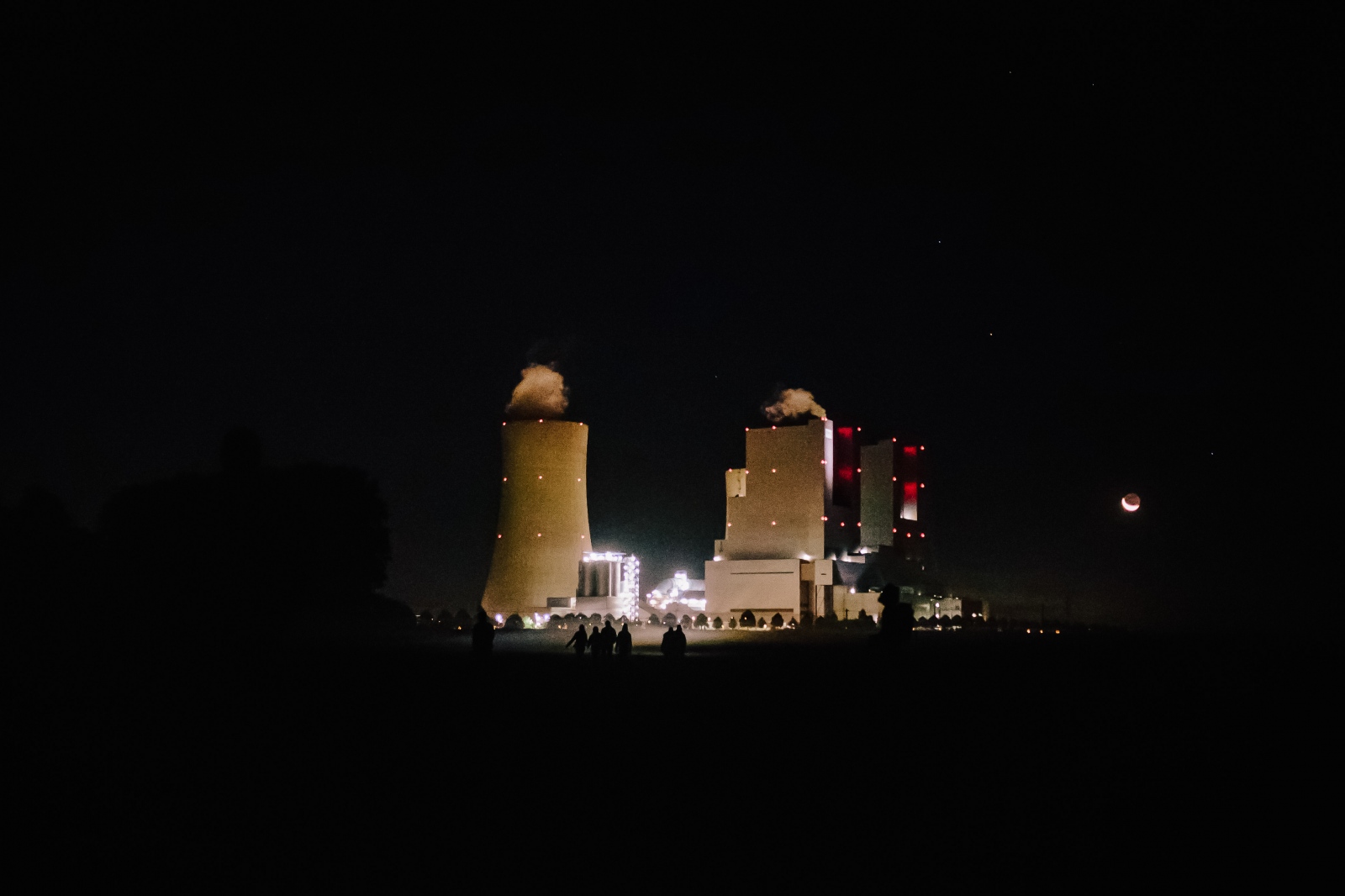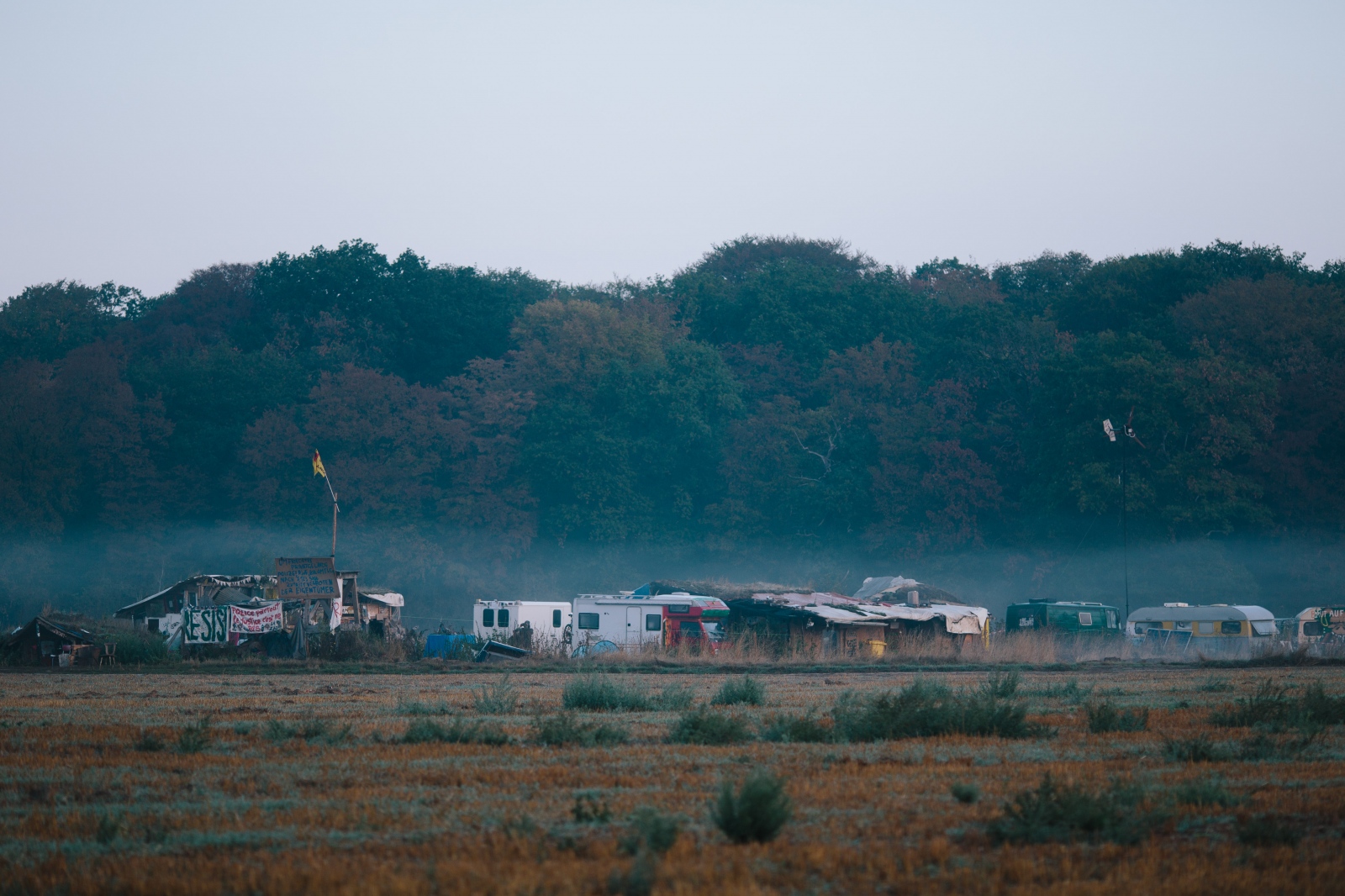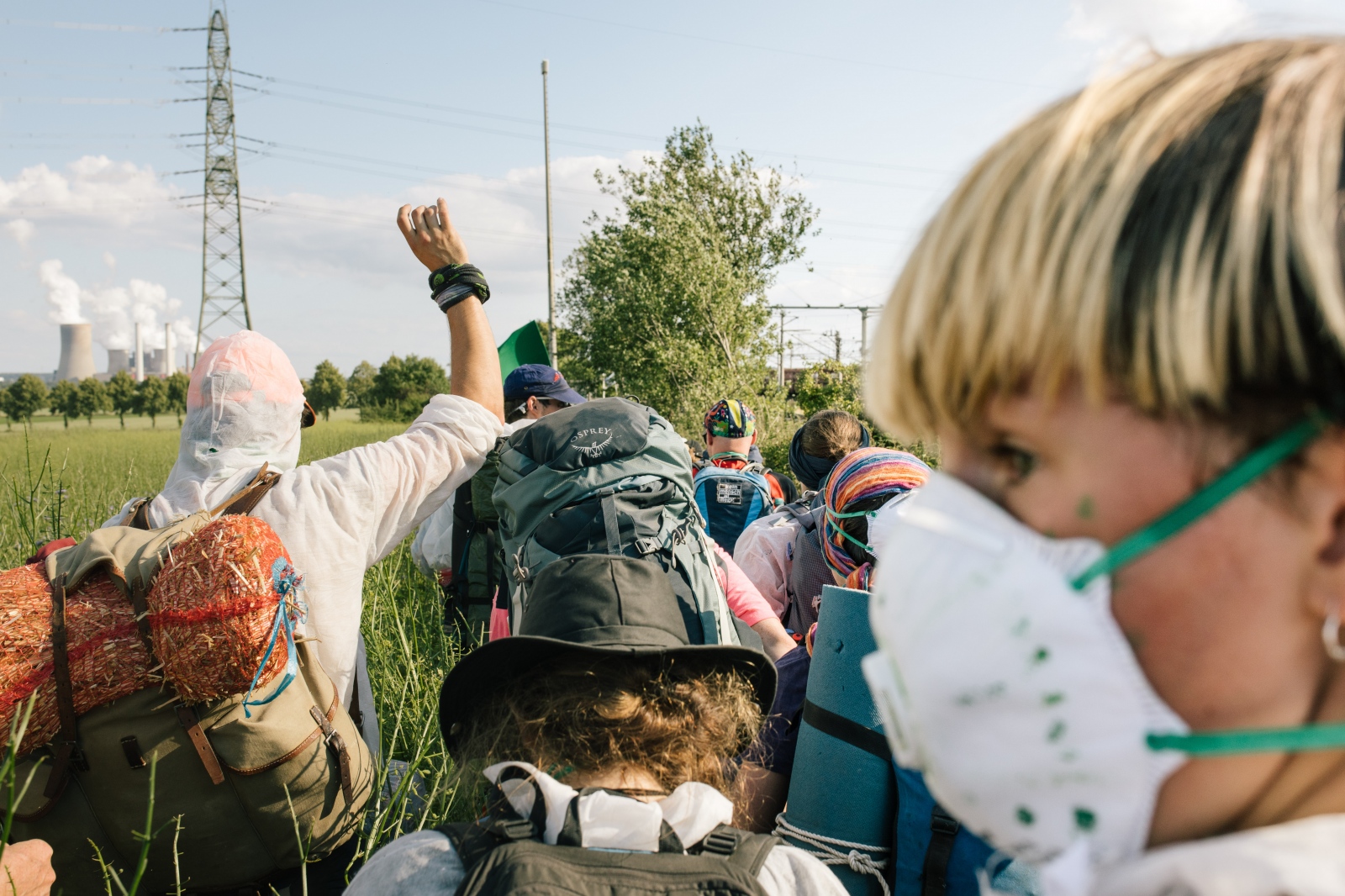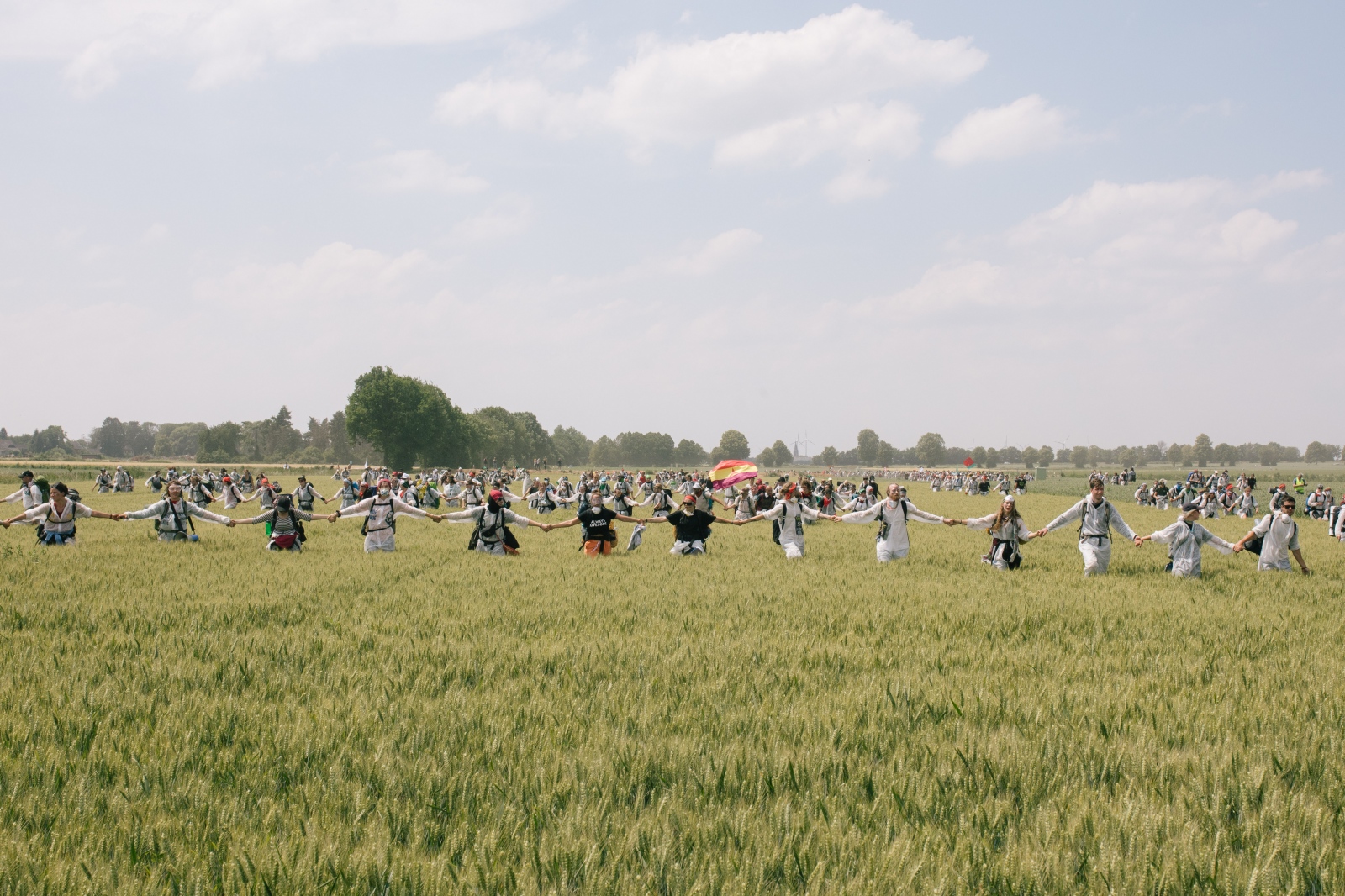Public Story
Climate Activism in Germany
In the Rhinland lignite mining area and at other coal sites groups of activists block and stop operation. The actions mainly target infrastructure and therefore what keeps the German economy running. The occupation and the successful reoccupation of Hambacher Forst have become a symbol for the untamable mind of the climate movement. In nightly actions of small groups or as people break through police lines with thousands to reach the open surface pit during mass protests: Police attempts to stop the mass civil disobedience and sees itself confronted with problems handelling the actions. The consensus of the actions has a pacifist touch to it, demanding no harm to people and no use of violence. Therefore activists run towards police ready to beat and arrest them, not resisting, but trying to avoid confrontation.
These moments of collective resistance have continuity in the history of the climate movement in Germany. In the rut of the existing system, several thousand people often participate in civil disobedience and paralyze the heart of capitalism.
Pictures were taken during the past four years, mainly in the Rhineland mining area and attempt to deliver the feeling of freedom by collective actions.
Im Verlauf der letzten Jahre ist die Klimakrise, die Folgen der globalen Erderwärmung, unseres Konsum und der kapitalistischen Verwertung von Ressourcen mehr und mehr zu einem gesamtgesellschaftlichen Thema geworden. Zum globalen Klimastreik gingen in Deutschland 1,4 Millionen Menschen auf die Straße um ein klimapolitisches Umdenken zu fordern. In verschiedensten Formen leisten Menschen kollektiven Widerstand und versuchen unmittelbare politische Änderungen zu bewirken. Eine Vermittlung der ökologischen Probleme und deren, systemischer, ökonomischer Ursache kommt ihnen zu kurz.
Im direkten Umfeld des rheinischen Braunkohlereviers und an anderen Kohlestandorten blockieren und stoppen verschiedene Gruppen von Aktivist*innen den Betrieb. Die Aktionen sind immer stets ein Angriff auf die Kohle-Infrastruktur und damit auf das, was die deutsche Wirtschaft am laufen hält. Mit der Besetzung und der später erfolgreichen Wiederbesetzung, wurde der Hambacher Forst zum Symbol für die Klimabewegung. Ob nächtliche Aktionen durch Kleingruppen oder Durchbrüche in die Grube bei Großprotesten: Die Polizei versucht den massenhaften zivilen Ungehorsam zu stoppen und sieht sich mit Problemen konfrontiert. Der Aktionskonsens spricht sich gegen den Einsatz von Gewalt aus. So rennen Aktivist*innen oftmals auf Schlagstock schwingende Polizist*innen zu, wehren sich nicht, sondern durchfließen einfach Polizeiketten.
Diese Momente des kollektiven Widerstands haben Kontinuität in der Geschichte der Klimabewegung in Deutschland. Im Trott des bestehenden Systems beteiligen sich oft mehrere Tausend Menschen am zivilen Ungehorsam und legen das Herz des Kapitalismus lahm.
Die Bilder sind in den vergangenen vier Jahren, hauptsächlich im rheinischen Braunkohlerevier entstanden.
Im direkten Umfeld des rheinischen Braunkohlereviers und an anderen Kohlestandorten blockieren und stoppen verschiedene Gruppen von Aktivist*innen den Betrieb. Die Aktionen sind immer stets ein Angriff auf die Kohle-Infrastruktur und damit auf das, was die deutsche Wirtschaft am laufen hält. Mit der Besetzung und der später erfolgreichen Wiederbesetzung, wurde der Hambacher Forst zum Symbol für die Klimabewegung. Ob nächtliche Aktionen durch Kleingruppen oder Durchbrüche in die Grube bei Großprotesten: Die Polizei versucht den massenhaften zivilen Ungehorsam zu stoppen und sieht sich mit Problemen konfrontiert. Der Aktionskonsens spricht sich gegen den Einsatz von Gewalt aus. So rennen Aktivist*innen oftmals auf Schlagstock schwingende Polizist*innen zu, wehren sich nicht, sondern durchfließen einfach Polizeiketten.
Diese Momente des kollektiven Widerstands haben Kontinuität in der Geschichte der Klimabewegung in Deutschland. Im Trott des bestehenden Systems beteiligen sich oft mehrere Tausend Menschen am zivilen Ungehorsam und legen das Herz des Kapitalismus lahm.
Die Bilder sind in den vergangenen vier Jahren, hauptsächlich im rheinischen Braunkohlerevier entstanden.
































